
Journal of Mass Spectrometry and Advances in the Clinical Lab
Scope & Guideline
Elevating Laboratory Practices Through Open Access Insights
Introduction
Aims and Scopes
- Clinical Diagnostics and Biomarker Development:
A core focus of the journal is the development of mass spectrometry-based methods for the detection and quantification of clinical biomarkers, which play a crucial role in disease diagnosis and monitoring. - Therapeutic Drug Monitoring:
The journal frequently publishes studies on therapeutic drug monitoring (TDM) using mass spectrometry, highlighting its importance in optimizing patient treatment regimens for various medications. - Method Development and Validation:
There is a strong emphasis on the methodological aspects of mass spectrometry, including the development and validation of new assays, which ensures reliability and accuracy in clinical settings. - Innovative Analytical Techniques:
The journal showcases innovative techniques and advancements in mass spectrometry instrumentation, including high-resolution mass spectrometry and multiplexed assays, which enhance analytical capabilities. - Sample Preparation and Pre-analytical Factors:
Research addressing pre-analytical variables, such as sample handling and storage conditions, is prominent, reflecting the journal's commitment to improving the robustness of mass spectrometry applications in clinical laboratories.
Trending and Emerging
- Multiplexed and High-Throughput Assays:
There is a significant trend towards the development of multiplexed assays and high-throughput screening methods, facilitating the simultaneous analysis of multiple analytes, which enhances efficiency in clinical laboratories. - Integration of Machine Learning and Data Analytics:
Recent publications increasingly incorporate machine learning and data analytics to improve the interpretation of mass spectrometry data, indicating a growing trend towards utilizing computational techniques to enhance analytical outcomes. - Personalized Medicine and Pharmacogenomics:
The journal is seeing a rise in publications related to personalized medicine, particularly in the context of pharmacogenomics, where mass spectrometry is used to tailor drug therapies based on individual patient profiles. - Focus on Pre-analytical and Sample Handling Innovations:
Emerging themes include innovations in sample preparation and handling to reduce variability and improve the accuracy of mass spectrometry results, reflecting a critical aspect of clinical diagnostics. - Advanced Applications in Pediatric and Specialized Populations:
There is an increasing emphasis on the application of mass spectrometry in pediatric care and other specialized populations, addressing unique challenges in these fields and enhancing clinical care.
Declining or Waning
- General Mass Spectrometry Techniques:
There seems to be a waning interest in broad discussions of mass spectrometry techniques without direct clinical applications, as the journal increasingly emphasizes specific clinical applications and validated methods. - Basic Research in Mass Spectrometry:
Papers focused solely on theoretical aspects or basic research of mass spectrometry, without direct clinical implications, have decreased, indicating a shift towards applied research that directly impacts clinical practice. - Non-clinical Applications:
Publications exploring mass spectrometry applications outside of clinical diagnostics (e.g., environmental or food safety) appear to be less frequent, as the journal narrows its focus to clinical relevance.
Similar Journals

JOURNAL OF ANALYTICAL CHEMISTRY
Advancing the Frontiers of Analytical KnowledgeJOURNAL OF ANALYTICAL CHEMISTRY, published by PLEIADES PUBLISHING INC, stands as a pivotal resource in the field of analytical chemistry, offering an innovative platform for researchers, professionals, and students to advance their knowledge and contribute to the discourse within the discipline. With an ISSN of 1061-9348 and an E-ISSN of 1608-3199, this journal features a focused exploration of analytical methodologies, instrumentation developments, and applications across various domains, contributing to practical and theoretical advancements in the field. Currently ranked in the Q3 category in Analytical Chemistry with a Scopus rank of #111 out of 156, it provides critical insights and innovation strategies for professionals aiming to enhance their analytical capabilities. Access to the journal is through standard subscription models, and it covers an extensive range of topics pertinent to the discipline from 1996 to 2024. Engage with the JOURNAL OF ANALYTICAL CHEMISTRY to be part of a vibrant research community dedicated to push the boundaries of analytical practices.
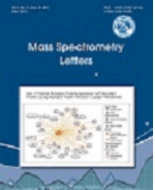
Mass Spectrometry Letters
Fostering Innovation in the Heart of Mass Spectrometry.Mass Spectrometry Letters is a pioneering open-access journal published by the Korean Society for Mass Spectrometry, specializing in the diverse fields of analytical chemistry, biochemistry, and spectroscopy. Established in 2010, this journal aims to disseminate groundbreaking research and advancements in mass spectrometry and its applications across various scientific domains. Though currently categorized in the Q4 quartile in key analytical fields, Mass Spectrometry Letters serves as an essential platform for researchers, professionals, and students to share innovative methodologies, emerging trends, and practical applications of mass spectrometry, thus fostering collaboration and advancing knowledge in the scientific community. With a commitment to open access, articles published since 2010 are readily available, enabling widespread distribution and engagement within the international research community. Located in Daejeon, South Korea, and actively converging research through 2024, the journal holds the potential to grow its impact and relevance within the dynamic landscape of mass spectrometry.

MICROCHEMICAL JOURNAL
Fostering Knowledge in Analytical and Spectroscopic AdvancesMicrochemical Journal, published by Elsevier, stands as a leading scholarly publication in the fields of Analytical Chemistry and Spectroscopy, boasting impressive rankings of Q1 and Q2 in their respective categories for 2023. With an H-index reflecting its substantial impact and relevance, this journal has been a cornerstone of research dissemination since its inception in 1957, and it continues to play a vital role in advancing the methodological and technological innovations within these disciplines. The journal presents peer-reviewed articles that explore a wide array of topics, making it an essential resource for researchers, professionals, and students keen on the latest advancements in microchemical processes and techniques. Although it does not currently offer open access options, its publication through Elsevier ensures a high standard of academic integrity and wide accessibility through various academic institutions. With a strong Scopus ranking—9th in Chemistry Spectroscopy and 22nd in Analytical Chemistry—Microchemical Journal is an indispensable platform for empirical studies, insightful reviews, and pioneering methodologies in the microchemical domain.
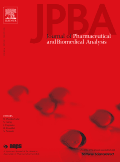
Journal of Pharmaceutical and Biomedical Analysis
Innovative insights for tomorrow's drug discovery.The Journal of Pharmaceutical and Biomedical Analysis, published by ELSEVIER and available in print and online formats, stands as a pivotal source of knowledge in the realms of Analytical Chemistry, Clinical Biochemistry, Drug Discovery, and Pharmaceutical Science. With an ISSN of 0731-7085 and an e-ISSN of 1873-264X, this journal is dedicated to publishing high-quality research that advances the understanding and development of analytical techniques in pharmaceuticals and biomedicine. The journal has earned a solid reputation, reflected in its Q2 category rankings across five distinct fields for 2023, and boasts impressive Scopus rankings, signaling its robust impact within the academic community. The Journal of Pharmaceutical and Biomedical Analysis serves as an essential resource for researchers, professionals, and students alike, providing actionable insights and fostering innovation that can directly influence future advancements in drug development and biomedical applications.

BUNSEKI KAGAKU
Fostering Innovation in Scientific InquiryBUNSEKI KAGAKU, published by the Japan Society Analytical Chemistry, is a reputable journal dedicated to the field of analytical chemistry. With an ISSN of 0525-1931, this journal has been a crucial outlet for scholarly communication since its inception in 1952, converging its publication years from 1954 to 1957 and from 1959 to 2024. Although it holds a Q4 category ranking in the most recent 2023 quartiles of analytical chemistry and ranks 153/156 in Scopus, it continues to serve as a platform for quality research, fostering advancements in the field. BUNSEKI KAGAKU is based in Tokyo, Japan, and emphasizes the critical importance of analytical techniques in scientific inquiry. With a commitment to professionalism and rigor, the journal provides a vital resource for researchers, students, and professionals seeking to explore innovative methodologies and contribute to the ongoing dialogue in analytical chemistry.

ATOMIC SPECTROSCOPY
Exploring Innovations in Molecular Analysis.ATOMIC SPECTROSCOPY is a distinguished journal specializing in the field of spectroscopy and published by ATOMIC SPECTROSCOPY PRESS LTD. With ISSN 0195-5373 and e-ISSN 2708-521X, this journal has been a cornerstone in advancing the discipline since its inception, thriving in its relevant domain for over four decades, covering converged research years from 1980 to 1989 and from 1996 to 2024. Currently holding a Category Quartile of Q2 in Spectroscopy for 2023, ATOMIC SPECTROSCOPY ranks 34th among 76 in its field according to Scopus, placing it in the 55th percentile, thereby affirming its critical role as a resource for researchers, professionals, and students alike. This journal serves as a platform for disseminating innovative research, methodological advancements, and breakthroughs in atomic and molecular spectroscopy, fostering a comprehensive understanding that is essential for progress in analytical chemistry and related disciplines. While it operates under a non-open access model, the journal ensures broad reach and visibility within the academic community. For those passionate about spectroscopy, ATOMIC SPECTROSCOPY remains an invaluable resource for staying updated on the latest developments, contributing to its reputation as a leading journal in the field.
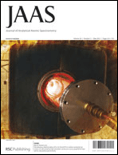
JOURNAL OF ANALYTICAL ATOMIC SPECTROMETRY
Pioneering Insights in Analytical Chemistry.JOURNAL OF ANALYTICAL ATOMIC SPECTROMETRY, published by the esteemed Royal Society of Chemistry, stands as a vital resource in the fields of Analytical Chemistry and Spectroscopy. Since its inception in 1971, this journal has been committed to disseminating cutting-edge research, offering an invaluable platform for the presentation of quantitative and qualitative analytical methods. With an impressive impact factor and a current classification in the Q2 category of both Analytical Chemistry and Spectroscopy, it significantly contributes to the advancement of knowledge in these disciplines. Researchers, professionals, and students looking to deepen their understanding of atomic spectrometry will find a wealth of innovative studies, reviews, and methodological papers that consistently push the boundaries of traditional and emerging analytical techniques. Although not an open-access journal, it provides accessible options that facilitate the engagement of a broad academic audience, ensuring that vital research is not confined solely to institutional repositories. The journal's exceptional standing, demonstrated by its strong Scopus rankings, further underscores its critical role in the scholarly communication landscape.
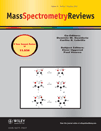
MASS SPECTROMETRY REVIEWS
Connecting Disciplines with Cutting-Edge ResearchMASS SPECTROMETRY REVIEWS, published by Wiley, is a premier academic journal dedicated to advancing the field of mass spectrometry and its applications across a multitude of scientific disciplines. With an ISSN of 0277-7037 and an E-ISSN of 1098-2787, the journal has established itself as a vital resource within the realms of Analytical Chemistry, Biochemistry, Genetics, Condensed Matter Physics, and Spectroscopy, achieving Q1 status across these categories in 2023. As a testament to its significant contribution to scholarly research, it boasts impressive Scopus rankings, including a rank of #2 out of 76 in Chemistry - Spectroscopy and #4 out of 156 in Chemistry - Analytical Chemistry, placing it in the 97th percentile and above. Emphasizing high-quality, peer-reviewed research, MASS SPECTROMETRY REVIEWS serves as an essential platform for researchers, professionals, and students aiming to stay abreast of cutting-edge developments and methodologies in mass spectrometry. The journal is committed to fostering a deeper understanding of mass spectrometric techniques while also contributing to interdisciplinary advancements, making it a valuable addition to any academic library. Authors seeking to disseminate their work in a journal with a strong reputation and impact in the scientific community will find MASS SPECTROMETRY REVIEWS an ideal venue.

Separation Science Plus
Advancing analytical horizons in separation science.Separation Science Plus is an emerging academic journal dedicated to advancing the field of analytical chemistry and separation science. Published by WILEY-VCH Verlag GmbH, this journal provides a platform for researchers to disseminate high-quality studies and reviews that address innovative techniques and breakthroughs in separation methodologies. With its ISSN 2573-1815, the journal has made significant inroads since its inception in 2018, encompassing a convergence period until 2024. Despite currently holding a Q3 ranking in Analytical Chemistry and a Q4 ranking in Filtration and Separation, its dedication to publishing impactful research makes it a vital resource for professionals and students alike. The journal operates under the robust scholarly reputation of WILEY, which is known for its commitment to excellence in scientific communication. Researchers interested in the latest advancements in separation techniques will find Separation Science Plus an essential read, fostering the exchange of knowledge and facilitating greater understanding within this specialized field.
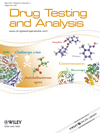
Drug Testing and Analysis
Connecting Research to Real-World Drug Safety SolutionsDrug Testing and Analysis is a leading scholarly journal published by WILEY, dedicated to advancing the field of drug testing and analytical methods. With ISSN 1942-7603 and E-ISSN 1942-7611, this journal provides a platform for the latest research in Analytical Chemistry, Pharmaceutical Science, and Environmental Chemistry, holding a prestigious reputation reflected in its Q1 and Q2 rankings across various categories in 2023. The journal promotes high-impact studies that explore innovative methodologies, with a specific focus on pharmacological and toxicological analyses, making it an essential resource for researchers, professionals, and students concerned with drug efficacy, safety, and environmental impact. With a strong commitment to quality and relevance, Drug Testing and Analysis remains at the forefront of contemporary scientific inquiry, contributing significantly to both academic and practical advancements in the industry.